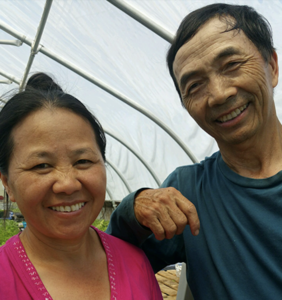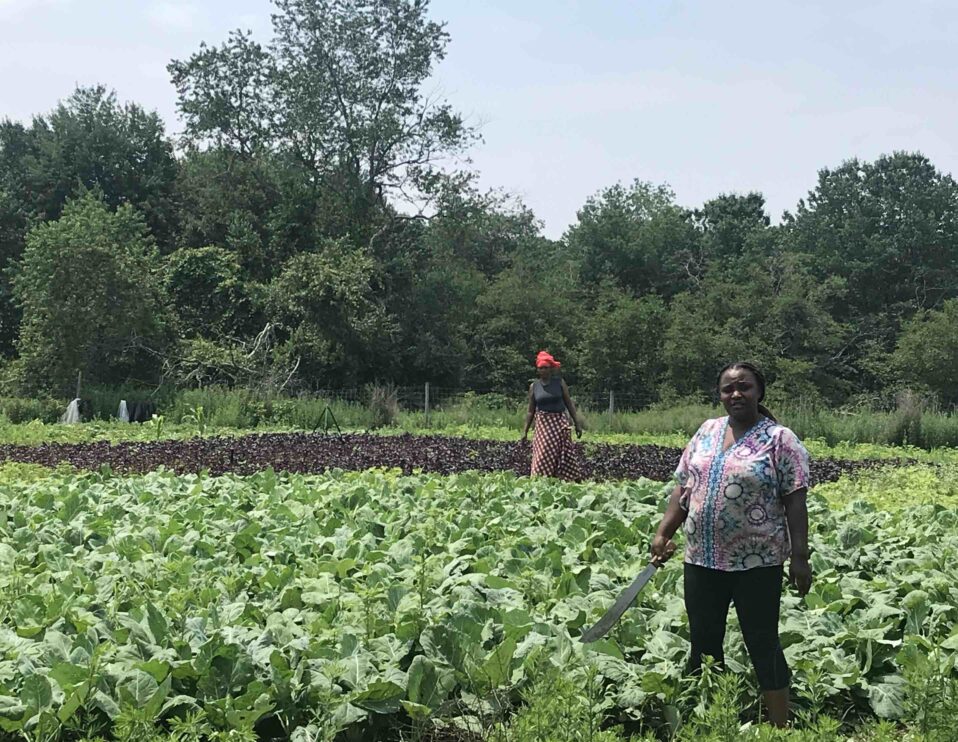On Tues., Feb. 21, the RI Department of Environmental Management announced the winners of the Local Agriculture and Seafood Act grant program’s (LASA) 2022 funding cycle. Forty-two applicants were approved through a competitive selection process, including seven from farmers growing on SCLT-owned and managed land, plus one from SCLT itself.

Greenleaf Farm owners Choua and Kia were awarded a $20,000 LASA grant grant.
SCLT network farms received a total of $133,000 in LASA funds out of the $700,000 awarded, which operators will use to buy farm equipment and cargo vans to help them move their produce from Cranston’s Urban Edge Farm (UEF) and Good Earth Farm to SCLT’s Farm-to-Market Center and other buyers.
“This is great news,” said Ben Torpey, who manages Urban Edge Farm. “Several farmers will now have expanded capacity to produce and deliver their harvests to the city with greater ease.”
This year saw the greatest number of LASA-funded grants awarded to farmers in SCLT’s network. Farmer Support Staff assisted farmers with their applications, as most are non-native English speakers from Southeast Asia, Africa and the Caribbean.
This includes Charlotte Uwimpuhwe, who came to the U.S. 10 years ago from Rwanda, and has been farming at UEF for the past 6 years. Last year, her mother, Marie Mukabahizi, joined her. Together, they sell their produce through SCLT, to Hope’s Harvest and Farm Fresh, and at the Armory Park Farmers Market in Providence.
LASA grants went to:
- Green Leaf Farm, $20,000 toward the purchase of a van
- Phillip Yang Farm, $13,350 toward the purchase of a walk-behind tractor and implements
- Teo’s Products, $20,000 toward the purchase of a van
- Wilson Community Farm, $20,000 toward the purchase of a van and a walk-behind tractor
- Informal Cooperative of Farmers, $20,000 toward the purchase of a van
- Daily Farm, $20,000 toward the purchase of a small tractor and implements
- Charlotte’s Farm, $20,000 toward the purchase of a van
SCLT’s $20,000 grant will help fund a tractor and equipment to support farmers at its rural properties.
According to DEM’s press release, since the pandemic the state “has steered the program to prioritize building capacity for markets connecting local farms and fishers with food-insecure communities and supporting agriculture producers and fishers who are Black, Indigenous, and People of Color – along with developing small food businesses.”
This lines up with SCLT’s mission. “These grants can make a big difference for small farm businesses, which operate on very thin margins,” said Ben. “We support the increased and ongoing funding for LASA, and look forward to helping even more growers access these resources in the future.”
Pictured above is Charlotte tending her crops at Urban Edge Farm in Cranston.


